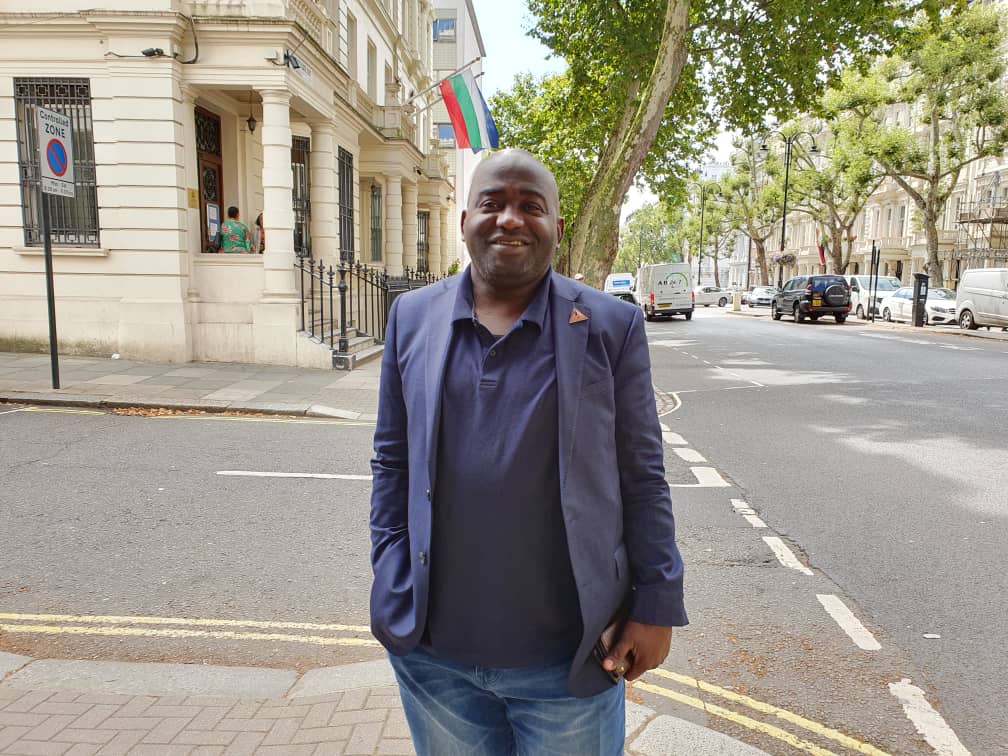By Paul Nicholson
July 27 – Musa Bility has entered the FIFA integrity debate again with a hard-hitting letter to the chair of the African Union and the secretary general of the United Nations imploring them to “intervene and reform FIFA and organizations such as CAF”.
Bility, a former Confederation of African Football (CAF) executive committee member and former president of the Liberian FA, accuses FIFA and CAF of a “systematic dismantling of African and world football interests by corruption.”
He says: “Absolute power has corrupted these organisations absolutely,” in a letter that gives an outline of how the world governing body has been operating with member associations, officials and governments in Africa.
Bility is currently serving a 10-year ban and $500,000 fine delivered by FIFA following his failure to support the decision for a FIFA-CAF cooperation that saw FIFA take over the running of the affairs of CAF from 1 August 2019. He is appealing that ban at CAS and now has a hearing date set for September 29 – more than a year after he filed his appeal.
He was banned in controversial circumstances. Having been warned by FIFA staff that if he did not support the motion for the FIFA takeover of CAF he would face a ban, but which could be avoided if he toed the line, he stood his ground. True to their threat, FIFA Ethics banned him 10 days after the motion was passed for FIFA to take over CAF. FIFA said that the verdict banning Bility was made in February 2019 and that they had been investigating him since 2018, but it inexplicable took five months to impose the ban.
In his letter to the AU and UN, Bility paints a picture of FIFA’s authoritarian rule of Africa where constant threats from the world governing body to suspend national associations whose governments involve themselves in their football’s administration “have hamstrung individual UN and AU member Government efforts to bring much needed oversight and accountability to this most popular sport in those countries.
“Conversely, the same Governments are compelled to spend millions of dollars annually to fund football activities, a cyclic investment that has no discernible return on investment.”
He describes the relationship between FIFA and governments as “dysfunctional, abusive, exploitative and dangerously lopsided”.
Bility points to the forensic accounting report by Pricewaterhouse Coopers (PwC) than found more than $24 million of member funds “embezzeled” by a “small cabal of the organizations officials”, and that FIFA Ethics have still failed to act.
In contrast, and illustrating the selective nature of FIFA Ethics investigations, he also higllights the recent FIFA ruling against Guinea-Bissau Football Association President Manuel Nascimento who was banned for a total of 10 years (a day before presidential elections he was expected to win) “for his role in protecting the victim of a mob lynching in his home country. The matter had been reviewed and dispensed with by local judiciary who found him inculpable of any criminal offense.
“Unfortunately for Mr. Nascimento, he has been vocal over the last 4 years about the open theft of member funds at CAF and was therefore viewed as hostile to the current CAF leadership,” says Bility.
In Africa, Bility says, at least 15 governments have “have been threatened by FIFA for actively wanting to protect the football aspirations of their people by opening investigations or criminal proceedings against football officials.” This is against a backdrop of elected football officials who trade their political votes for immunity from FIFA Ethics committee sanction as they collect and misappropriate millions of dollars of FIFA grants, knowing they have FIFA protection from investigation.
“FIFA has shown no compunction exploiting the footballing human and infrastructure resources of these same countries that it regularly threatens, resources that have been developed painstakingly through heavy taxation of citizens, massive debt, wars, and struggles for independence,” says Bility.
See the full Bility letter to the AU and UN by clicking on the link.
Musa Bility letter to AU and UN
Contact the writer of this story at moc.l1734972268labto1734972268ofdlr1734972268owedi1734972268sni@n1734972268osloh1734972268cin.l1734972268uap1734972268

